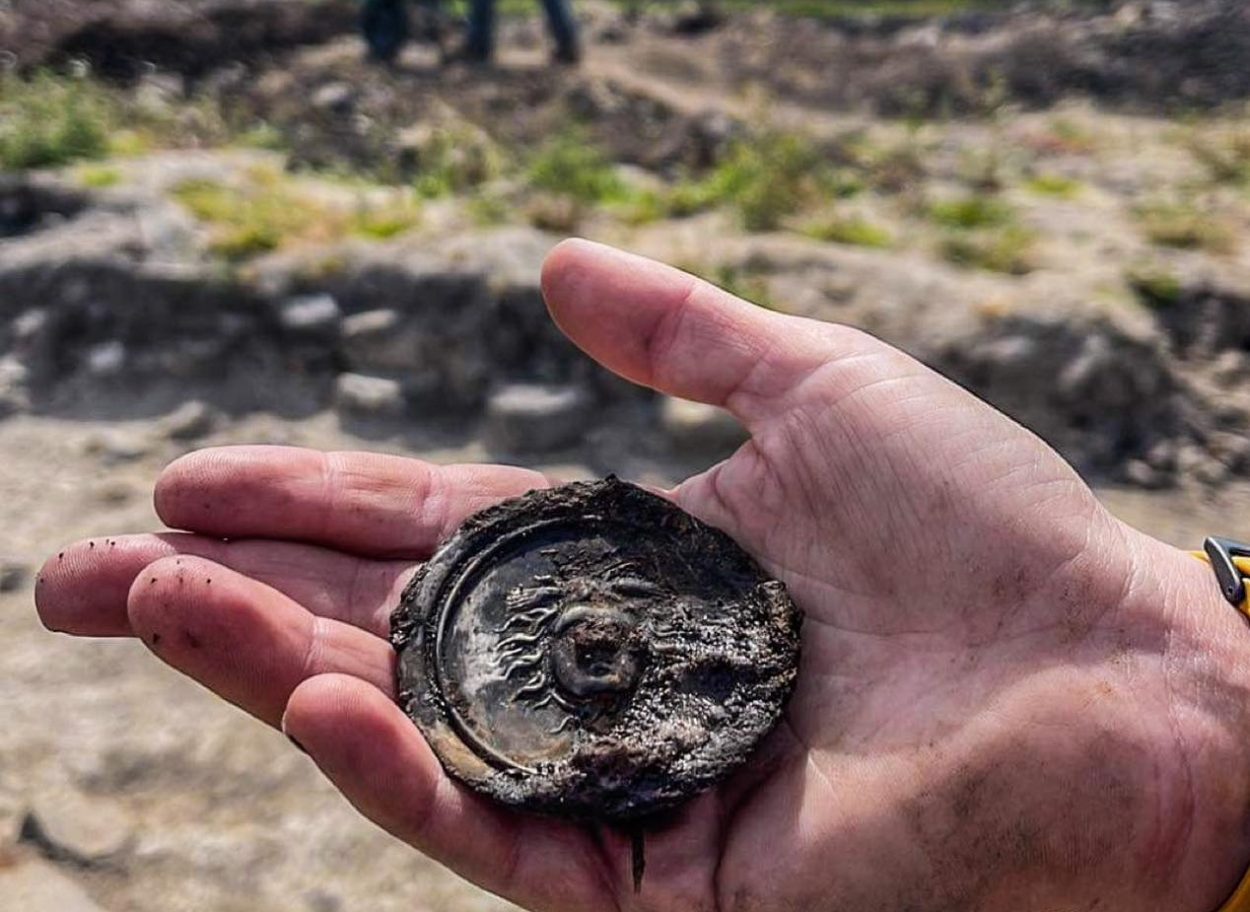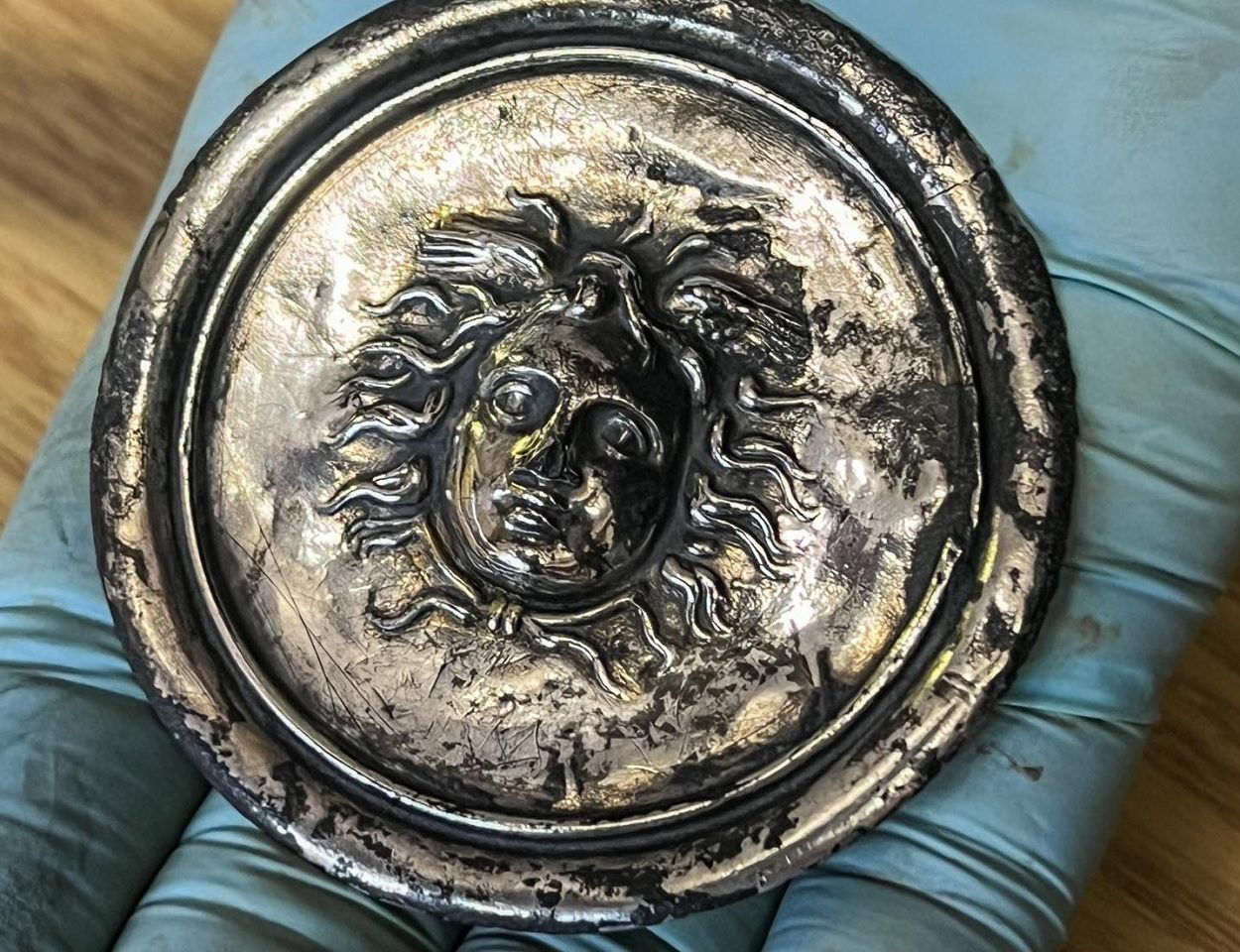Volunteer archaeologists excavating at Roman Vindolanda have uncovered a silver phalera depicting Medusa during this seasons excavations.
Vindolanda (translated as “white field” or “white moor”) was a Roman auxiliary fort, situated on the fringes of the Roman Empire near Hadrian’s Wall to guard a major highway called the Stanegate.
No less than nine Roman forts were built of timber or stone at Vindolanda from around AD 85 to 370, creating one of the most complex archaeological sites in Britain and a unique cultural legacy of frontier life.
Today, Vindolanda is an ongoing active archaeological site, with previous excavations uncovering thousands of perfectly preserved shoes, textiles, wooden objects, and the Vindolanda tablets (the oldest surviving documents in Britain that date from the 1st and 2nd century AD).

Recent excavations focusing on the floor of a barracks building have uncovered a silver phalera disk normally worn on the breastplate by Roman soldiers during parades. The disk features the head of Medusa, one of the three monstrous Gorgons from Greek mythology, who is shown with her venomous snake hair and piercing eyes that turn onlookers to stone.
Volunteer archaeologists have also found evidence of military life in the Roman fort during this seasons excavations. Finds include a lance head, a spear head, a mall copper alloy spoon, a stamped mortarium rim, Samian pottery, a melon bead, an enamelled bow brooch, a copper alloy scabbard chape (the protective fitting at the bottom of a scabbard or sheath for a dagger), and a well preserved wooden bath clog.
The discoveries are currently being preserved in the Vindolanda lab, with the silver phalera forming part of the 2024 current finds exhibition at Vindolanda.
Header Image Credit : The Vindolanda Trust (Copyright)





